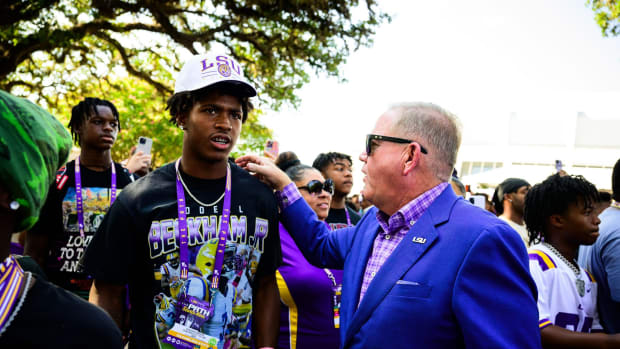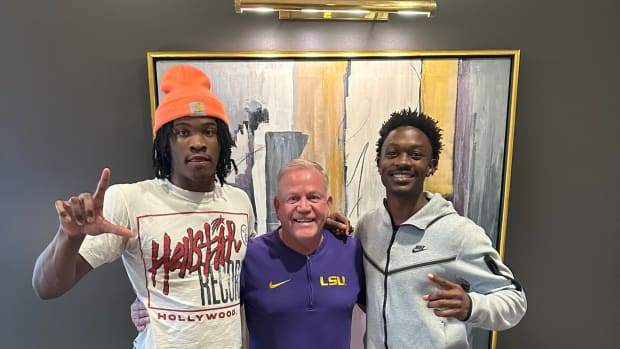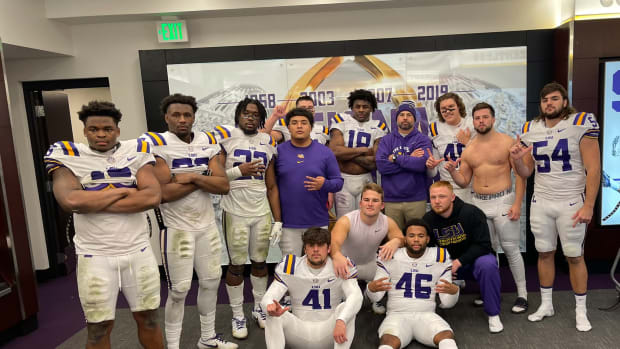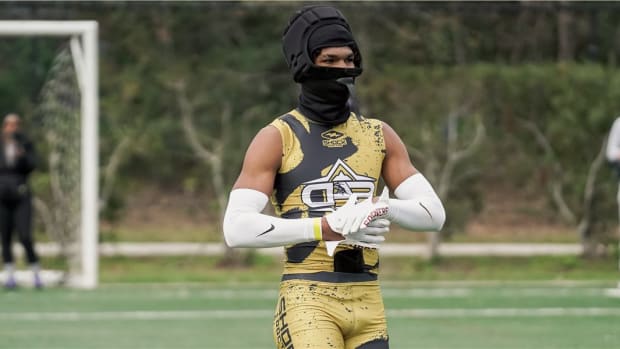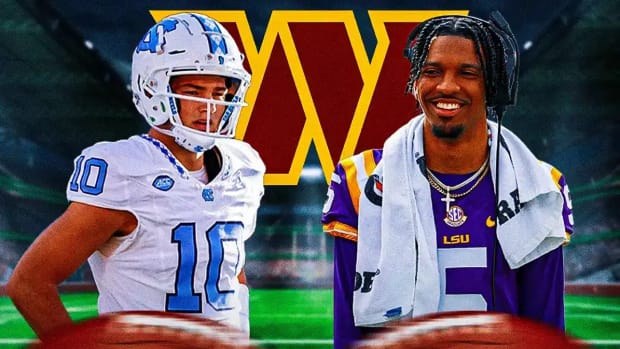SEC Commissioner Greg Sankey Says Change in "Public Health Trends" the Key to LSU, College Football's Return
When word first came down late last week that the SEC and its 14 athletic directors would be sitting down for a meeting on July 13 for the first time since March to discuss the future of college football, the question on everyone's mind was what kind of decisions would be made?
After meeting most of the day, the conference will elect to hold off on having to make any drastic decisions about the college football season until the end of July.
"It is clear that current circumstances related to COVID-19 must improve and we will continue to closely monitor developments around the virus on a daily basis," SEC commissioner Greg Sankey said in a statement released by the conference. "In the coming weeks we will continue to meet regularly with campus leaders via video conferences and gather relevant information while guided by medical advisors. We believe that late July will provide the best clarity for making the important decisions ahead of us."
While no big decisions came out of the meeting, the SEC did address a number of smaller issues if a college football season were to commence in the fall. Among the topics discussed were various scheduling options the conference could choose to gravitate towards as well as what the gameday protocols would be to ensure safety of the players, coaches, staff and fans.
These were the expected topics of conversation, particularly after the Big Ten announced its decision to move to an all-conference schedule last week. In an interview on the Paul Finebaum Show Monday afternoon, Sankey said the decision from the Big Ten doesn't directly impact the SEC's process because there were no non-conference games between the two conferences scheduled for 2020 in the first place.
"We are not at that destination," Sankey said of all-conference play. "A number of our colleague conferences are not at that destination. We have no common games with the Big Ten this year, just one of the common realities in our schedule."
One of the challenges the conference and athletic directors discussed on Monday was the issue of testing and what that protocol could look like if a season were to occur. Outside of a vaccine, the ability to test is the singular most important area that needs to be addressed if the SEC moves forward with a season in the fall according to Sankey.
"The ability to have reliable, available and timely testing is at the top of the list," Sankey said. "In order to facilitate what may come--the opportunity to play--that reality around testing is going to be very important. If you asked me today, if we don't have a vaccine, the that testing ability is going to be critical."
While there are a number of areas the conference will look to in the coming weeks, the idea of "public health trends" was a point that was alluded to throughout the course of the interview. Right now, the SEC will ultimately make its decision based on the information it receives from its health officials but Sankey noted that the uptick in not just positive cases but the increase in hospitalizations is a concerning factor.
With the conversations Sankey has had with medical professionals in recent weeks, the common ending and suggestions to those phone calls are "it'll be important to watch what happens over the next two or three weeks." It's why the SEC will table any major decisions for the 2020 season until the end of the month.
"We’ve gone in the wrong direction and that’s problematic. That doesn’t mean that’s the finish line and things will never change. We’ve seen the news around COVID-19 alter itself in different ways over a number of weeks," Sankey said. "And so what we’ve identified is an opportunity in late July for an important check in to see our public health reality. We were told from the beginning to take as much time as possible to make a better decision.
"The public health trends are not what we had hoped, not what we were seeing in May and June. Those aren't overly hopeful comments. I want to be clear about that and be realistic. It’s a reminder of how we have to watch what's happening in the health arena around us. And I take those those points of guidance seriously."
Sankey wouldn't publicly go into detail about what the conference needs to see over the next few weeks for the SEC to feel comfortable about moving forward with sports in the fall. In a general sense, Sankey said the numbers that the conference is seeing is a negative indicator but wouldn't give an exact number as far as a decrease in cases across the region.
"I sit here today, talking to you, not knowing what will happen in the fall," Sankey said. "But I also feel a responsibility not to just say 'okay we're done.' There are no simple answers and we've seen our colleagues make decisions and ultimately we're going to have to make a decision. We understand that and we're going to do exactly what we've been guided, which is continue to learn, continue to gather information and continuing consultation, all while we support our young people as best we can."
